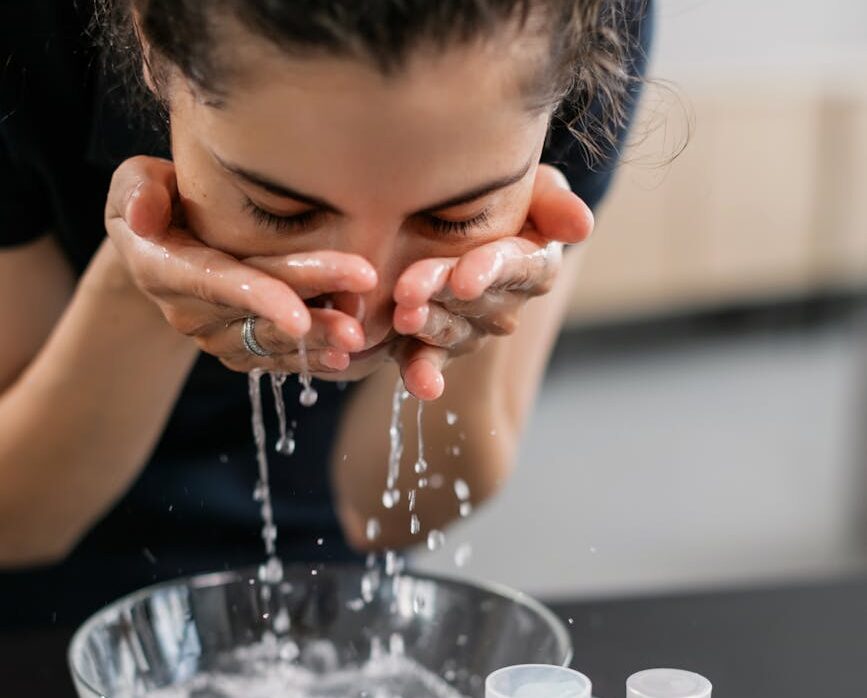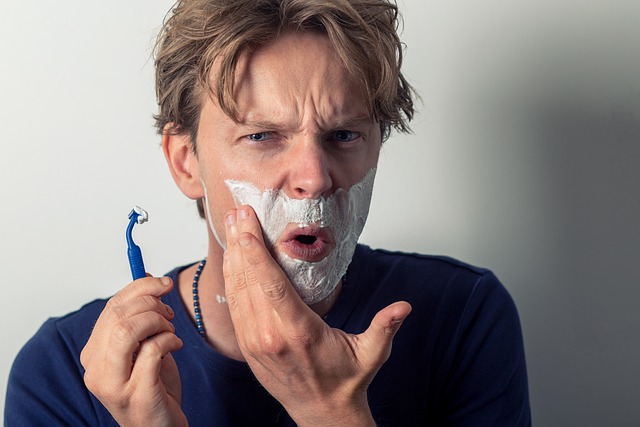Touching your face when you have acne can worsen breakouts, spread bacteria, and increase irritation. Oils, dirt, and germs from your hands can clog pores, leading to more pimples and inflammation. Breaking the habit of face-touching is crucial for clearer, healthier skin. This guide offers practical strategies and tips to help you keep your hands off your face while managing acne effectively.
Best Strategies to Stop Touching Your Face📋
Follow these steps to avoid touching your face and protect your acne-prone skin:
1. Increase Awareness of Your Habits 🕵️♀️
- Track your triggers: For a day, note when and why you touch your face (e.g., during meetings, while thinking). Use a notebook or phone app to log instances.
- Set reminders: Place sticky notes on your desk, mirror, or phone with messages like “Hands off face!” to stay mindful.
- Ask for help: Tell friends or family to gently point out when you touch your face, reinforcing awareness.
- Practice mindfulness: Try meditation or deep breathing to reduce stress-related face-touching. Apps like Headspace or Calm can help.
2. Keep Your Hands Busy 👐
- Use fidget tools: Hold a stress ball, fidget spinner, or pen to occupy your hands during idle moments.
- Engage in hand-based hobbies: Try activities like coloring or assembling small puzzles to keep hands active during downtime.
- Adjust routines: If you rest your chin on your hand while reading, prop your book on a stand or hold it instead.
3. Maintain Clean Hands and Environment 🧼
- Wash hands frequently: Use a gentle soap to keep hands clean, reducing the risk of transferring bacteria if you accidentally touch your face.
- Sanitize surfaces: Regularly clean your phone, keyboard, and glasses with disinfectant wipes.
- Use tissues: If you need to scratch an itch or wipe sweat, use a clean tissue instead of your fingers.
- Keep nails short: Short nails minimize damage if you accidentally touch or scratch your face.
- Wear gloves temporarily: At home, wear lightweight cotton gloves for a few hours to physically block face-touching while building awareness.
4. Optimize Your Personal Space to Minimize Face Contact 😊
- Tie back hair: Use a headband or ponytail to keep hair off your face, reducing the need to brush it away with your hands.
- Wear glasses mindfully: Clean glasses daily and adjust them with clean fingertips to avoid transferring oils to your face.
- Use hands-free devices: Opt for earbuds, speakerphones, or Bluetooth headsets to prevent pressing your phone against your skin.
- Change pillowcases frequently: Swap pillowcases every 2–3 days to avoid oil and bacteria buildup that could transfer to your face during sleep.
- Avoid resting on hands: When sitting, keep hands on your lap or desk instead of propping up your face.
- Use clean towels: Dry your face with a fresh, soft towel after washing to prevent irritation and bacterial transfer.
5. Build Long-Term Habits 🕒
- Set daily goals: Commit to a specific number of “no-touch” hours each day (e.g., during work or meals) and gradually increase the duration.
- Reward progress: Treat yourself to small rewards (like a favorite snack or activity) for days you successfully avoid face-touching to reinforce the habit.
- Practice self-talk: When tempted to touch your face, mentally repeat affirmations like “My skin stays clear when I keep hands off” to stay motivated.
- Schedule check-ins: Review your face-touching log weekly to assess progress and adjust strategies, ensuring consistent improvement.
6. Support Your Skin Care Routine 🧼
- Follow a consistent routine: Cleanse your face twice daily with a gentle, non-comedogenic cleanser, apply acne treatments (like benzoyl peroxide or salicylic acid), and moisturize to reduce irritation.
- Avoid picking pimples: Picking worsens acne and causes scarring. If you feel tempted, apply a spot treatment and cover with a hydrocolloid patch to protect the area.
- Stay hydrated: Drink water and use a humidifier to keep skin moisturized, reducing the need to touch dry or itchy areas.
- Consult a dermatologist: For severe acne, seek professional advice on treatments like retinoids or antibiotics to reduce the urge to touch inflamed areas.
Final Thoughts
Avoiding face-touching is a powerful step toward managing acne and achieving clearer skin. By staying mindful, keeping your hands busy, and supporting your skin with a gentle routine, you can break the habit and reduce breakouts. Be patient—habits take time to change, but with consistent effort, your skin will thank you.
Do Cold Showers Help with Acne?
https://www.moretodayskincare.com/blog/face-touching




